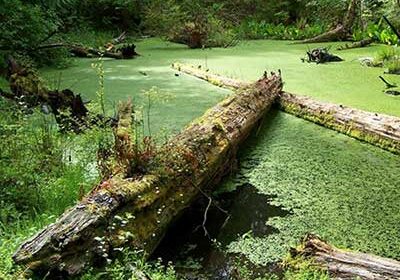Continuing Education Forum - Onsite Sewerage
We host free monthly online meetings to provide continuing education for Practitioners and Professionals in the BC sewerage industry.
We also provide recordings of previous Forums ($40 each). Scroll down to ARCHIVED FORUMS to see the topics of previous Forums
Typically, we have a guest speaker to deliver a presentation on a specific topic followed with a Q&A opportunity regarding the presenter's topic and an open discussion about any issue that participants wish to raise.
Sessions are live, interactive and online. We use screen-sharing software (Zoom) to provide the visual presentation (PowerPoint etc.) with audio options by phone or by voice-over-internet.
This is an excellent continuing education opportunity for professionals and practitioners. You will be able to claim continuing education credits for EGBC or continuing professional development hours for ASTTBC.
If you would like to take part in the next Continuing Education Forum, please fill in your details in this Event Registration Form and click Register to submit. You will be automatically registered and provided with a ZOOM link. Use that ZOOM link to join the live session on the scheduled date and time.
Fields marked with an * are required.
Live Continuing Education Forum Registration
Register below to get access to our upcoming live forums.

Upcoming forums will address new topics. We invite your suggestions for continuing education topics. And we are looking for volunteers to provide presentations!!!!! Got an interesting project? Wanna share your specific expertise?
Use this form to register for the next forum. You will receive an email with a digital link to join the online session using ZOOM video conferencing.
Archived Forums
What do we chat about? Here is an overview of recent forums which you can purchase (tax is added).
Click on any of those to see details about the content and to ADD TO CART for access to the recording.
The presenter was Jamie Betts, P.Eng., Chief Operating Officer/Vice President Operations,
EverGen Infrastructure Corporation. Jamie provided a fascinating presentation about 'biogas' generation from organic waste, agricultural and landfill waste, and wastewater from sewage treatment facilities.
BUY NOW
Michael Payne, P.Geo. P.Eng. provided a presentation regarding a difficult site that required significant departures from the Sewerage System Standard Practice Manual - focused on how to document a custom design and provide rationale for departures from the SPM, in accordance with the EGBC Professional Practice Guidelines for Onsite Sewerage.
BUY NOW
We had an excellent open discussion with contributions by many participants and several of our instructors, regarding a wide range of sewerage topics. (A very wide range!!). Jim chatted about a severely constrained site involving SPM departures; business practices regarding preliminary site visits (fees or no fees? Test pits or not?). Michael Payne and Tim Wilson discussed providing rationale for SPM departures such as reduced setbacks and reduced system length. Trefor Digby chatted about ROWPs changing UV bulbs despite the SSR requirement for Professional maintenance of type 3 systems.
Other topics included anti-flotation strategies for tanks in high groundwater conditions, concrete tanks versus poly tanks, challenges posed by electricians and landscapers, best practices for site cleanup and landscaping preparation, mound sand versus C33, administrative policies of the various Health Authority regions, floating outlet devices, Erickson and Tyler's oxygen flux model to address bed widths greater than 3 m, quantified methods to model the mounding effect and support linear loading departures, etc.
BUY NOW
Jim Andersen, AScT, ROWP, provided a presentation outlining several onsite sewerage projects for sites with severe constraints. These projects required significant departures from the SPM … with custom hydraulic and linear loading rates, reductions to horizontal separation standards to water bodies, wells, etc.
BUY NOW
Jim and the EQUIP team provided a presentation describing the mounding effect, addressing system length challenges on constrained sites and determining custom linear loading rates based on quantified methods.
BUY NOW
Jim facilitated a discussion regarding initiatives by various local governments to promote sewerage maintenance. Then Dale Green from the Capital Regional District provided a presentation regarding the CRD Maintenance Bylaw and the new CRD maintenance assessment cost-share program.
BUY NOW
Ian Ralston, P.L.Eng. provided a presentation regarding the BC Government's One Water initiative. This is a relatively new regulatory approach that emphasizes the interconnected types of water: drinking water, rainwater, wastewater (including sewage), groundwater and waterbodies. Ian explored risk management based design, from a perspective of greywater reuse and the broader relevance to design of onsite systems in a watershed context
BUY NOW
Jim provided a presentation outlining the design and installation of two large flow systems, each under 22,700L DDF on the same site.
BUY NOW
Jim and the EQUIP team hosted a discussion regarding sewerage maintenance. Topics included:
- What should local government sewerage maintenance bylaws look like?
- What is maintenance? How should it be done?
- How do we improve competencies for maintenance providers?
- How do we get more qualified maintenance providers?
- Should ROWP Installers and Planners be allowed to provide maintenance services?
- How do we promote public awareness and education regarding sewerage maintenance?
BUY NOW
Jim and the EQUIP team hosted a discussion to identify and propose revisions to the BC Ministry of Health's Sewerage System Standard Practice Manual.
BUY NOW
Paul Blackett, P.Tech, ROWP, CESA provided an excellent presentation regarding his project for a large flow system under the Municipal Wastewater Regulation.
Topics included:
- A comparison of the Municipal Wastewater Regulation versus the Sewerage System Regulation.
- The enforcement framework under the MWR.
- Technical challenges fore this specific project.
BUY NOW
Jim facilitated a presentation and group discussion regarding tanks..
Topics included:
- Design considerations and configurations; poly vs concrete, favorable configurations of septic tanks, shallow and long versus short and deep, single chamber vs two chamber tanks.
- Using pump vaults within septic tanks.
- Anti-floatation options and considerations.
- Advantages and disadvantages of various treatment products.
- Cold climate considerations.
BUY NOW
Brent Dennis, P.Eng. provided an excellent presentation on a wide range of topics related to 'doing business better' in the onsite sewerage industry. Followed with a robust group discussion.
BUY NOW
We explored the SPM Standards for assuring leak free tanks and piping and the SPM guidelines for water-tight testing. Then, Jackson Twa, ROWP provided an excellent presentation, showed us his equipment and procedures for vacuum testing - a quick and effective means of leak testing.
Jackson had a recent example of discovering and repairing a significant leak. An excellent discussion ensued - with participants sharing their experience with leaking tanks and piping, groundwater infiltration problems, and procedures for leak testing and repair.
BUY NOW
Jim and the EQUIP team shared photos and documents outlining several challenging projects - with a focus on 'what went wrong?' and 'how to avoid similar trouble in future?'
BUY NOW
As a follow up to the March 25 forum, we had a more detailed discussion regarding selection of treatment processes and hardware.
Other topics included source control and mitigation, flow equalization, the regulatory context for non-sewerage flows (winery waste is an interesting and recurring theme!).
We also focused on 'what does the SPM say?' about selection and specification of treatment.
BUY NOW
We had a very productive group discussion regarding the regulatory framework, exploring the significant differences in the approaches to treatment of the Sewerage System Regulation versus the Municipal Wastewater Regulation, and the wide diversity in treatment requirements by Regional Districts and other local regulators within OCP's, local bylaws, covenants, etc.
We also explored the treatment technologies in common use, advantages and disadvantages of various treatment processes and considerations for selection of appropriate treatment hardware with regard to anticipated sewage characteristics.
BUY NOW
The panel (Michael, Ian, Brent, Jim, Bruce) provided a presentation exploring the regulatory framework for First Nations sewerage and the unique considerations for design, installation and maintenance.
A robust group discussion followed, with participants contributing insights regarding high occupancy, high strength wastewater, maintenance considerations and development of maintenance competency within First Nations communities.
BUY NOW
Jim Andersen, AScT, ROWP provided a presentation exploring design and installation challenges for systems with significant risk of freezing. Topics included insulation, piping configurations to minimize freezing, draining the pipe networks, heat tape, tank heaters, sleeved road crossings and other strategies to address cold climates.
Jeff Oland, P.Eng. prepared and delivered valuable contributions to the presentation. Bruce McColm, ROWP, added his insights to the presentation based on his considerable cold weather experience.
Very productive discussion followed with our usual panel (Michael, Ian, Brent etc.) and great participation from the large group (30+) of participants.
BUY NOW
Brent Dennis, P.Eng, provided a presentation exploring the perceived pitfalls of the Regulation (SSR).
Briefly stated - Brent 'normalized' the negative aspects of the regulatory framework (all industries have similar issues) while highlighting the positive aspects (better outcomes for protection of health & environment and excellent opportunities for Practitioners and Professionals who do good work).
BUY NOW
Ian and Michael provided insights regarding the distinction between soil percolation rate and soil permeability, the advantages and disadvantages of perc tests and permeameter tests. and procedures for in-situ testing.
BUY NOW
Jim Andersen, AScT, ROWP provided a presentation outlining the PGA. Michael Payne, P.Eng, P.Geo and Ian Ralston P.L.Eng anchored the panel discussion and outlined the PGA guidance published by EGBC.
A great discussion ensued with participants.
BUY NOW
We had an entertaining 'mock' debate to demonstrate a typical interaction with a client who resists pressure dispersal options. Jim took the 'don't want a pump' position and Oscar Long, ROWP supported the 'sometimes you need a pump' position.
Then the panel of EQUIP contributors discussed the underlying principles of uniform and non-uniform distribution to soil dispersal systems, benefits of small dose volumes, timed dosing etc.
Forum participants joined the discussion with anecdotes and insights regarding pros and cons of pressure dispersal.
BUY NOW
We proposed a few questions for discussion, such as "which is best - grinder or solids handling pumps?", "in a small pump basin or a larger tank with reserve?" and "can we use sewage transfer basins to depart from septic tank setbacks?"
Don MacRae from Pump Tech Inc. was the primary presenter. The ensuing discussion by participants and the EQUIP team of contributors resulted in an excellent exploration of sewage transfer options.
BUY NOW
Buy Archived Forum Recordings
Coming soon.
Coming soon.
Coming soon.
